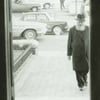It has been over ten years since the Lubavitcher Rebbe has passed on. I am 75 and want to tell the most important story of my life. It is a story of the wisdom of the Rebbe.
I was elected to the United States Senate in 1982. A couple of years later, my brother, Martin Hecht, and nephew, Dr. Chaim Hecht, took me to Brooklyn to meet the Rebbe at a farbrengen (a chassidic gathering). The Rebbe spoke to me and said “your top priority should be to get the Jews out of Russia.” I replied that my late mother was an immigrant from Russia who had to flee with her family to escape death at the hands of the Russian Cossacks. “The key,” the Rebbe said, was “quiet diplomacy.” Please remember that the Cold War with Russia was still on.
About three years later, a very important vote came before the U.S. Senate. President Reagan needed my vote to break a tie. The vote was very important to the President. I had been a top supporter of President Reagan as I felt he was the best friend Israel has in the White House.
I met personally with President Reagan and told him of my decision to back him with my tie-breaking vote. I then asked if I might bring up a concern on my mind. President Reagan graciously agreed. I told President Reagan that my late mother was an immigrant from the Soviet Union, and only by the grace of G‑d am I standing before you today in the United States Senate. I urged the President to place increased emphasis on the release of tens of thousands of Soviet Jews before the next summit conference. “Those who are allowed to leave the Soviet Union, Mr. President, should not be just elderly, but children, teenagers, doctors and scientists. All should be allowed the basic human right of freedom.” President Reagan expressed tremendous concern.
I was President Reagan’s last appointment before leaving for the Reykjavik, Iceland Conference which took place in early October 1986. At that meeting I presented President Reagan with a list of names of 1200 Soviet Jews who had applied to emigrate from Russia. I reminded the President that the numbers could reach in the millions, but this would be a start. I used “quiet diplomacy” as only the President, an aide, and myself were in the oval office.
President Reagan gave the list of 1200 names to Soviet President Mikhail Gorbachev at the Reykjavik Conference and spoke of its importance. Within weeks a trickle of Jews began to leave Russia. Soon the trickle mushroomed into tens of thousands.
After President Reagan left office and I became Ambassador to the Commonwealth of the Bahamas, he and Mrs. Reagan came to the Bahamas to vacation. They invited my wife and me to a cocktail party for a few friends. I told the President what a wonderful service he did for the Jewish people in getting the Jews to leave Russia and I asked why he never mentioned the act in public. Mrs. Reagan said that Mr. Gorbachev told them that there were many around him that did not want the Jews to leave Russia and if we made it public, the exodus would stop. President Reagan used “quiet diplomacy” with Mr. Gorbachev.
The story continues with a human touch. My brother, Marty, who has had trouble with his feet, went to Scripps Clinic in La Jolla, California. He was assigned a doctor who referred him to a specialist. The specialist examined him and asked a question, “As your name is Hecht, would you know a Senator Hecht?” Marty said, “He is my brother.” The doctor became very emotional and replied that I had saved his wife, mother and father-in-law. They were on the list and told to be at the airport at a certain time. They did not know what to expect. They boarded the plane and took off for Vienna. With what money they had, they sent a telegram of thanks to President Reagan. Since that time, I have met many more Jews that were on that list.
The Rebbe’s advice and instructions on using “quiet diplomacy” resulted in the saving of hundreds of thousands of lives and a stronger Israel where the majority immigrated.









Start a Discussion